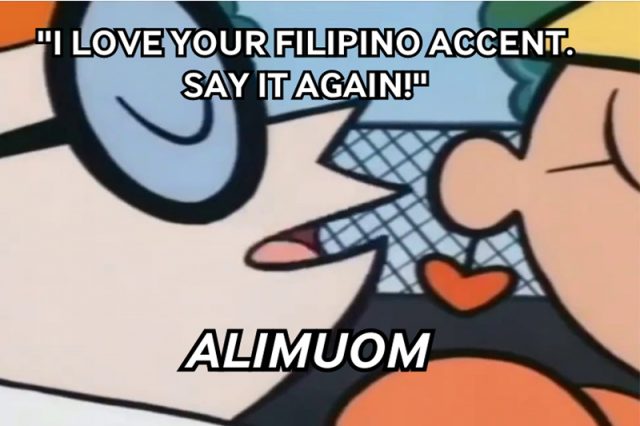
Often tucked between pages of dictionary books, some Filipino words are barely spoken by the general public. But when student organizations name their events, there’s no doubt that one would come across “deep” Filipino words as titles.
For this year’s Buwan ng Wika, Google interviewed four Filipino teachers about which Filipino words they find most interesting.
Tyron Casumpang, a Humanities and Social Sciences strand coordinator at the Far Eastern University, found the words “uswag” and “alimuom” particularly captivating. Not only do they have a significant meaning for him, but they also need to be pronounced with a firm voice.
“Uswag” is a Cebuano and Bisaya word that means “to develop” or “improve”. Despite the English word “develop” not having a direct translation in Filipino, Google said the closest words to it are “pagpapaunlad” (progress) and “pagpapalago” (growing an enterprise). These languages are among those predominantly spoken in Visayas.
Meanwhile, “alimuom” is a Tagalog word that refers to the pleasant smell seeping out of the ground right after it rains. As poetic as it is, the word is actually scientific for “petrichor” or “vapor”.
At San Beda University, Marvic Reyes of the Department of Language and Literature said that the Bulakenyo word “bulaos” is his favorite Filipino word. It is defined as a narrow path or walkway, similar to a trail along a small alley. The spoken tongue is not a language but a dialect of Tagalog and Filipino in the Central Luzon province.
Since the Philippines has over 180 languages and dialects, some words end up having several meanings across regions. “Bulaos” is one of them as it also means “roar” in main Filipino.
For O.B. Montessori Center teachers such as Nancy Mari Milate and Rodolfo Andres, their favorite Filipino words are quite eccentric compared to others. Milate said “pagbuburo” is Tagalog for the process of fermentation. This is a scientific concept that produces alcohol or an acid from the anaerobic process of converting starch or sugar.
According to Google, the root word “buro” is familiar among Filipinos as it refers to a local dish involving the fermentation of fish in red yeast rice, a common ingredient for fermentation.
Andres, on the other hand, said his favorite Filipino word is “urong”, a term more commonly used in referring to “moving aside or backwards”. However, the word he was referring to is a Tagalog word that means to wash the dishes, glassware and utensils. Google said only older generations of Tagalog speakers still use the word “urong” to remind children to clean up after eating.
Although Google Translate is not always accurate, it is still a widely used tool in the translation of 137 languages. Filipino, Cebuano and Ilocano are the native languages of the country available in the feature. —Intern, Dominique Nicole Flores









